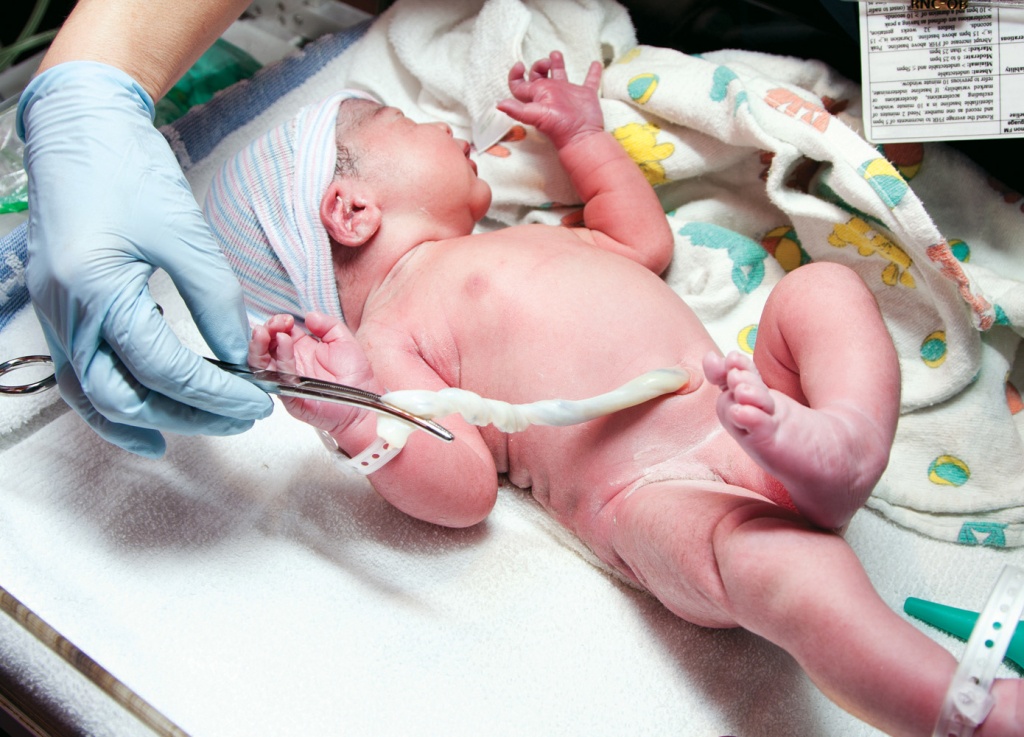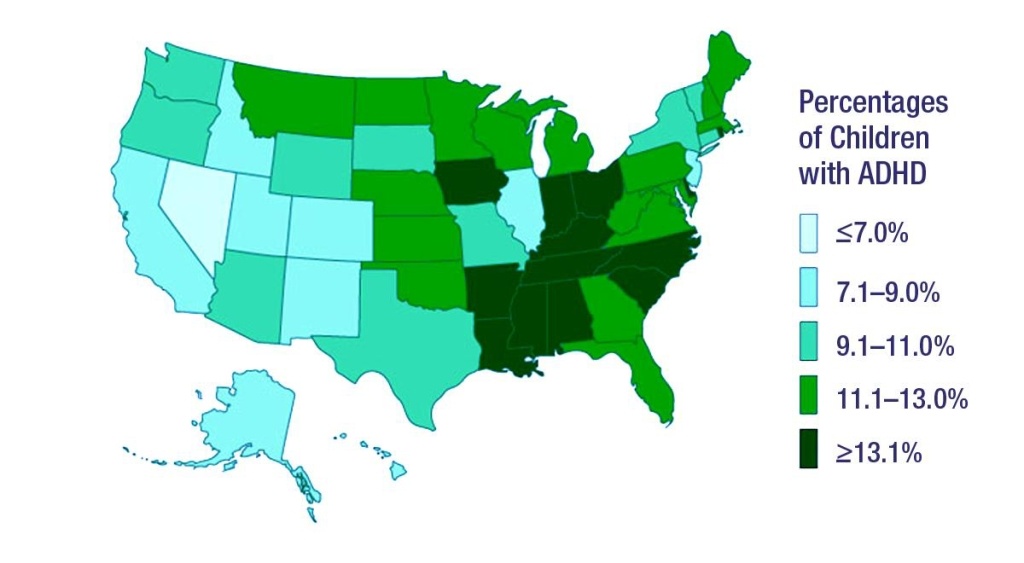From What Doctors Fail to Tell you About Iodine and Your Thyroid by Robert Thompson, M.D.
Iodine deficiency is the leading cause of preventable mental retardation worldwide.
What if a pregnant woman consumed a handful of pills that costs a few cents and protected her baby against mental deficiency and a crippling disease called cretinism? That’s all it takes to prevent this tragedy of epic proportions.
Iodine deficiency affects pregnant women, their babies and children in alarming numbers.
Let’s start at the beginning.
Women of childbearing age
Women with severe iodine deficiency are at risk for infertility, and, if they do become pregnant, they are at a higher risk for miscarriage, stillbirth, preterm delivery and birth defects in their babies, according to the National Institutes of Health (NIH).
Pregnancy depletes the mother’s mineral stores, including iodine, which is why pregnant women need at least 50% more iodine to help give the baby the minerals it needs.
Newly released research from the National Health and Nutrition Examination Survey (NHANES) confirms that women of reproductive age have the lowest iodine levels of all adults, barely above the markers for iodine deficiency. The American Academy of Pediatrics recently released a new policy statement urging the use of supplemental iodine for pregnant and breastfeeding women, pointing out that currently only 15% of women are taking supplements that contain adequate levels of iodine.
It’s disturbing to note that not all prenatal vitamins widely used in the United States contain iodine, even though the American Thyroid Association recommends minimal iodine dosages—150 mcg daily—for all pregnant women and nursing mothers. The Institute of Medicine recommends 220 mcg a day for pregnant women and 290 mcg daily for nursing mothers. Even the staid National Institutes of Health (NIH) says that up to 1,100 mcg of iodine is “likely safe” for pregnant and lactating women.
The Linus Pauling Institute warns that iodine deficiency during pregnancy can be a serious health problem for the mother, leading to potentially life-threatening preeclampsia, high blood pressure during pregnancy.
For fetuses, newborns and infants
Sufficient iodine is essential for brain development in fetuses and young children. Hypothyroidism in children has serious permanent effects on the brain if it is untreated, and even mild cases can detract from cognitive development.
The World Health Organization estimates that there are 285 million school-age children worldwide who are iodine deficient.
Breastfed infants get iodine from breast milk. However, the iodine content of breast milk depends on how much iodine the mother gets.
The effects of even mild iodine deficiency during pregnancy and in the early years of a child’s life can have profoundly negative effects on brain development and can doom a child to a lifetime of diminished intelligence.
Iodine plays a crucial role in the development of the brain and other parts of the central nervous system. Iodine deficiency during pregnancy can lead to a condition called congenital hypothyroidism, or low thyroid function from before birth. Congenital hypothyroidism can permanently compromise the child’s mental development and, in severe cases, leads to mental retardation, dwarfism and cretinism.
Cretinism is caused by severe iodine deficiency during pregnancy. Children with cretinism suffer from permanent brain damage, mental retardation, deaf mutism, spasticity and short stature. Fortunately, this sort of severe iodine deficiency and its tragic results is rarely seen in the Western world, but it is common in areas of Asia and Africa with low soil iodine levels.
Sadly, iodine supplementation after a baby is born with mental impairment or cretinism will not reverse the problem, says the NIH.
Even without congenital hypothyroidism, iodine deficiency during infancy may result in abnormal brain development and impaired intellectual development, says the Linus Pauling Institute.
Even a mild iodine deficiency during pregnancy, like that which affects about half of our population, has been shown to result in children with IQs that are more than 10 points lower than their counterparts born of iodine sufficient mothers.
One study showed that children born in iodine-deficient areas had IQs that were 11 points lower than those born in iodine-sufficient areas. As Dr. Brownstein notes, “An 11-point decline in IQ can mean the difference between a successful child and a troubled child.”
The NIH adds that although children of mothers from iodine-deficient regions may have normal thyroid function test results, they have been documented with lower language and memory performance.
Iodine deficiency in children and adolescents is often associated with goiter. The incidence of goiter peaks in adolescence and is more common in girls. School children in iodine-deficient areas show poorer school performance, lower IQs and a higher incidence of learning disabilities than matched groups from iodine-sufficient areas. One review of 18 studies concluded that iodine deficiency alone lowered mean IQ scores in children by 13.5 points.
Several recent studies link autism in children to iodine deficiency in their mothers. One from Weill Cornell Medical College in New York shows a fourfold increase in the risk of autism in children of mothers with severe iodine deficiency.
Given the fact that about 1% of the world’s population suffers from some impairment on the autism spectrum, researchers would be well advised to take a further look at the role iodine deficiency and bromine toxicity might be playing in the escalating number of children with autism.
The National Institutes of Health adds that mental retardation as a result of iodine deficiency can be made worse if the mother is deficient in selenium, a trace mineral crucial in brain and thyroid development. Vitamin D is also crucial to brain development and shortfalls may worsen the effects of iodine. Vitamin D shortfalls have also been linked to the rising autism rates.
Environmental factors
Iodine deficiency in the mother increases sensitivity to certain environmental toxins, particularly thiocyanates, iodine-blocking chemicals found in cruciferous vegetables like broccoli and tobacco smoke that act much like toxic halogens. Some research suggests that low iodine levels also increase sensitivity to perchlorate, a toxic chemical used in rocket fuel, fireworks and flares that is found in 4% of all public drinking water supplies.
Reversible iodine deficiency problems in children
Iodine deficiency in infants through the elementary school years can lead to behavioral problems, poor school performance and, according to Dr. Brownstein, can set the stage for lifelong learning problems.
ADHD
ADHD (attention deficit and hyperactivity disorder) is another epidemic in today’s world. The Centers for Disease Control and Prevention (CDC) says ADHD is the most common neurobehavioral disorder of children, with its numbers steadily escalating to as high as 18.7% in children between the ages of 8 and 17. These latest figures end in 2011, but given the unrelenting increase in ADHD diagnoses in the past 11 years, it wouldn’t be out of place to assume the numbers continue to escalate.
It’s also interesting to note that some of the states with the highest numbers of children with ADHD are the former Goiter Belt around the Great Lakes, where historically soils have been low in iodine.
Dr. Brownstein says that every child with a diagnosis of ADD/ADHD should have a complete nutritional and hormonal evaluation. He is convinced that many, if not most, of these children are actually suffering from iodine deficiency, which is easily corrected.
ADHD is not caused by a deficiency of Ritalin or other prescription drugs given to children to suppress the symptoms of the dis order, says Dr. Brownstein.
“ADHD is caused by nutrient and hormonal imbalances, including iodine deficiency,” he asserts.
Closely monitored iodine supplementation in children with ADHD has been shown to reverse the effects, resolve behavioral problems and improve learning abilities.
Infants and young children are very sensitive to fluctuations in their iodine levels. Low levels of iodine put them at risk for poor mental and psychomotor development, especially in language and memory skills. Some of these children may even be diagnosed with mental retardation.
The good news is that for these children, who were not deprived of iodine in utero, iodine supplementation and thyroid hormone replacement have been known to reverse the problem.
Toxic halogens
The worldwide epidemic of iodine deficiency applies to children as well and increases their need for more iodine in view of the pervasive toxic halogens—bromine, chlorine and fluorine—everywhere in our environment.
Research has linked iodine supplementation with increased ability of iodine to use the iodine receptors and knock the Black Hat halogens off their perches so life-giving iodine can be utilized.
WHO’s recommended iodine intake
Preschool children (0–59 months): 90 mcg
School-age children (6–12 years): 120 mcg
Adults (above 12 years): 150 mcg
Pregnant and lactating women: 200 mcg
Testing and supplements for children
Children can be tested for iodine sufficiency with a 24-hour urine test in the same way adults are tested, but at a lower dosage depending on their weight.
Supplemental iodine can be very helpful for children, but you must work with a qualified medical practitioner who can do the appropriate testing and monitoring.
Dr. Brownstein thinks these requirements are far too low and recommends iodine intake based on weight at 0.11 mg per pound per day, so a 50-pound child should get 5.5 mg (milligrams) of iodine daily.
Read more in What Doctors Fail to Tell You About Iodine and Your Thyroid by Dr. Robert Thompson










